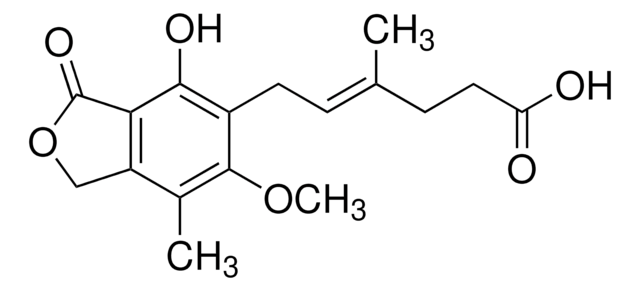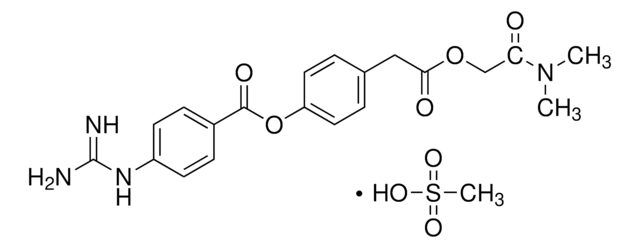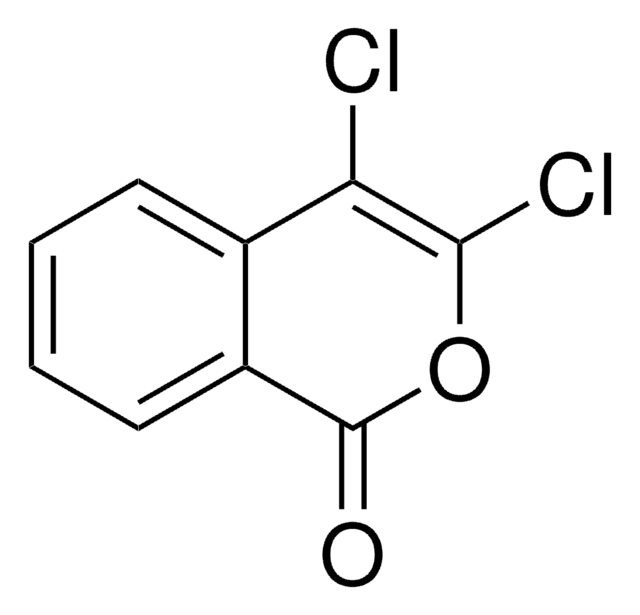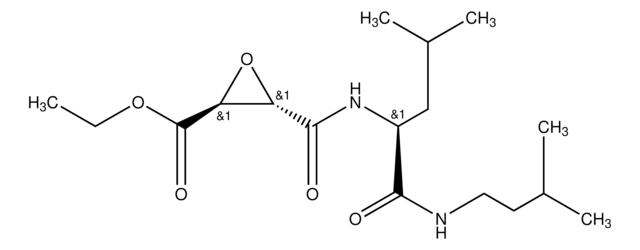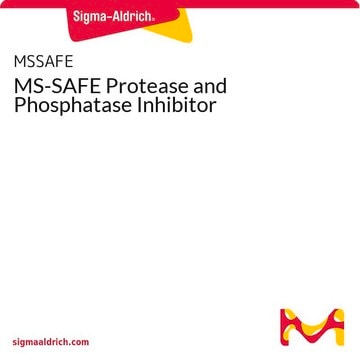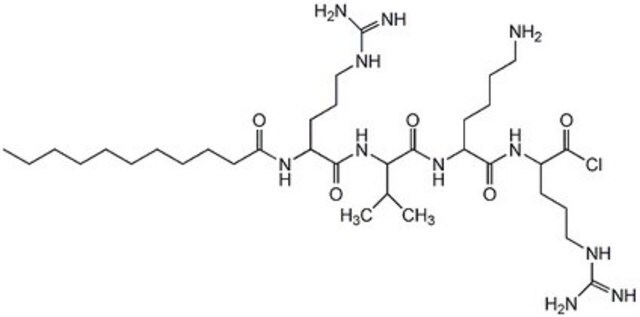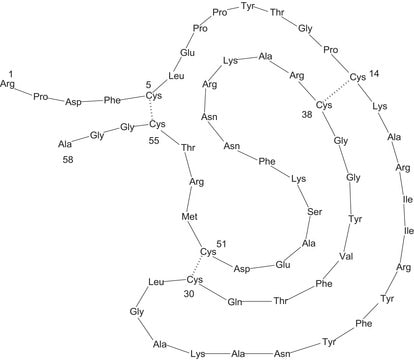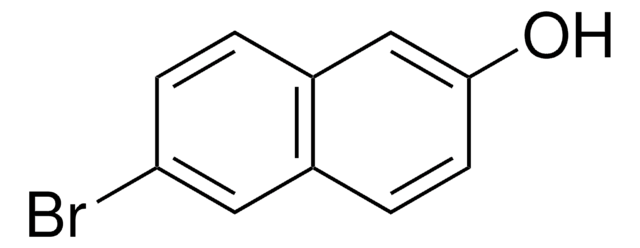N0289
Nafamostat mesylate
≥98% (HPLC), powder, serine protease inhibitor
Synonym(s):
4-[(Aminoiminomethyl)amino]benzoic acid 6-(aminoiminomethyl)-2-naphthalenyl ester dimethanesulfonate, FUT-175
About This Item
Recommended Products
Product Name
Nafamostat mesylate, ≥98% (HPLC)
Quality Level
Assay
≥98% (HPLC)
form
powder
color
white to beige
solubility
DMSO: 10 mg/mL, clear
H2O: >10 mg/mL
storage temp.
room temp
SMILES string
CS(O)(=O)=O.CS(O)(=O)=O.NC(=N)Nc1ccc(cc1)C(=O)Oc2ccc3cc(ccc3c2)C(N)=N
InChI
1S/C19H17N5O2.2CH4O3S/c20-17(21)14-2-1-13-10-16(8-5-12(13)9-14)26-18(25)11-3-6-15(7-4-11)24-19(22)23;2*1-5(2,3)4/h1-10H,(H3,20,21)(H4,22,23,24);2*1H3,(H,2,3,4)
InChI key
SRXKIZXIRHMPFW-UHFFFAOYSA-N
Application
- as a serine protease inhibitor to study its effects on proteolytic degradation of therapeutic proteins recombinantly expressed in Chinese hamster ovary (CHO)-K1-derived cells
- to stop complement activation to validate the assay for murine C3 fragments
- as a serine protease inhibitor to study its effects on house dust mite extract evoked Ca2+ entry
Biochem/physiol Actions
Signal Word
Warning
Hazard Statements
Precautionary Statements
Hazard Classifications
Repr. 2
Storage Class Code
11 - Combustible Solids
WGK
WGK 3
Flash Point(F)
Not applicable
Flash Point(C)
Not applicable
Personal Protective Equipment
Choose from one of the most recent versions:
Certificates of Analysis (COA)
Don't see the Right Version?
If you require a particular version, you can look up a specific certificate by the Lot or Batch number.
Already Own This Product?
Find documentation for the products that you have recently purchased in the Document Library.
Customers Also Viewed
Articles
Bioactive small molecules for immune system signaling target identification/validation and antibiotics, antivirals, and antifungals offered.
Our team of scientists has experience in all areas of research including Life Science, Material Science, Chemical Synthesis, Chromatography, Analytical and many others.
Contact Technical Service
